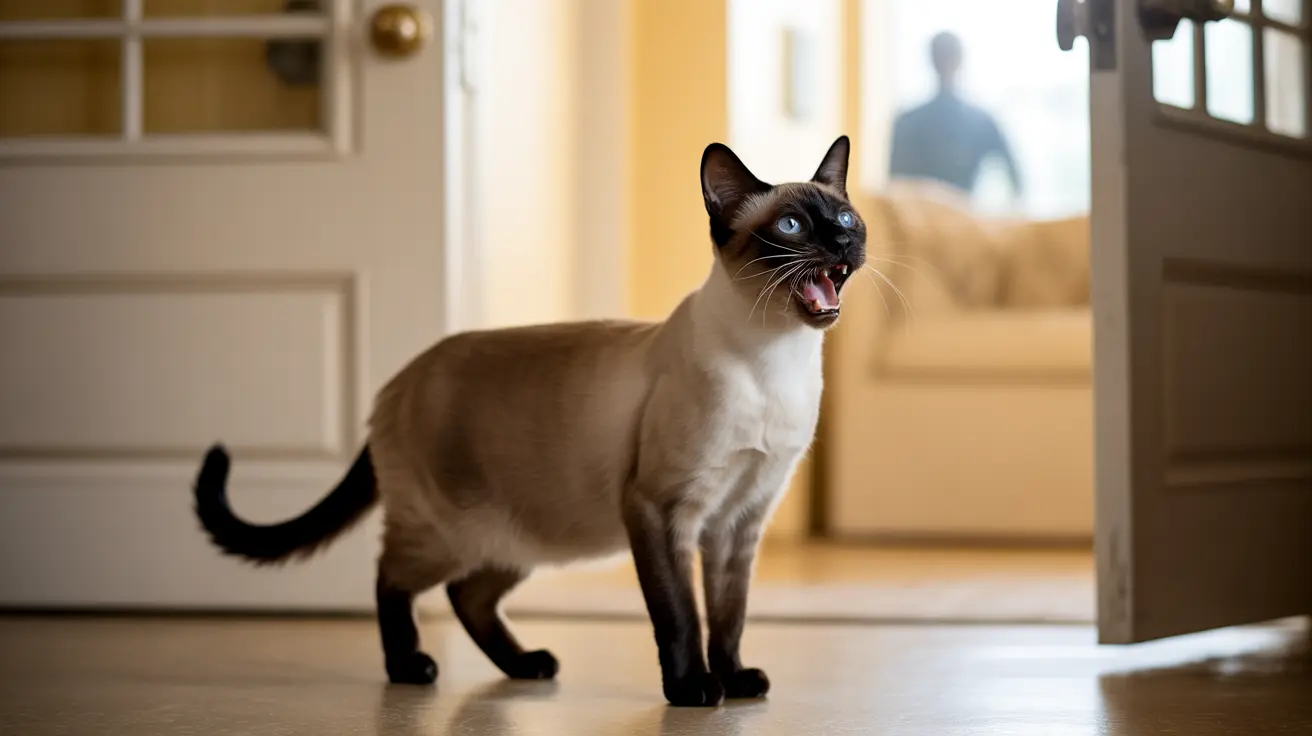If you're a cat parent, you've likely experienced your feline friend wandering off into another room only to start meowing loudly. This peculiar behavior can leave many pet owners puzzled and sometimes concerned. Let's explore the various reasons behind this common cat behavior and learn when it might signal something that needs attention.
Understanding why cats meow in other rooms is crucial for ensuring your pet's wellbeing and maintaining a harmonious household. While this behavior is often normal, it can sometimes indicate underlying issues that require addressing.
Common Reasons for Room-to-Room Meowing
Attention-Seeking Behavior
Cats are intelligent creatures that quickly learn which behaviors get their owners' attention. When your cat meows from another room, they're often trying to draw you to their location. This behavior is particularly common if it has worked for them in the past.
Many cats discover that their owners will come running when they vocalize from a distance, making this an effective strategy for getting what they want. This behavior can become more frequent if consistently reinforced.
Basic Needs and Communication
Sometimes, your cat may be signaling genuine needs when they meow from another room. They might be indicating:
- Their food or water bowl needs refilling
- The litter box requires cleaning
- They're stuck somewhere or need access to a closed space
- They want to play or seek interaction
Medical and Age-Related Causes
Senior Cat Concerns
Older cats may meow from other rooms due to cognitive dysfunction syndrome (CDS), similar to dementia in humans. This condition can cause confusion and disorientation, leading to increased vocalization, especially when they find themselves in unfamiliar or distant parts of the house.
Health Issues
Increased vocalization from different rooms might indicate various health concerns:
- Hyperthyroidism
- Sensory decline (vision or hearing loss)
- Pain or discomfort
- High blood pressure
Breed-Specific Tendencies
Some cat breeds, particularly Siamese and Oriental breeds, are naturally more vocal than others. These cats may regularly "talk" to their owners from different rooms as part of their normal communication style. This behavior is deeply rooted in their genetic makeup and shouldn't be cause for concern.
Environmental Factors
Territory Marking
Cats use vocalization as a way to mark their territory and communicate with other cats, even when indoors. Meowing in different rooms might be their way of announcing their presence or claiming various spaces within their territory.
Changes in Environment
Significant changes in your home environment can trigger increased vocalization, including:
- New furniture or home renovations
- Addition of new family members or pets
- Changes in routine or schedule
- Moving to a new home
How to Address the Behavior
If your cat's room-to-room meowing is becoming concerning, consider these solutions:
- Establish consistent daily routines for feeding and play
- Provide environmental enrichment through toys and climbing structures
- Schedule regular veterinary check-ups to monitor health
- Create safe spaces throughout your home where your cat feels secure
Frequently Asked Questions
Why does my cat go into another room and meow loudly?
Cats often meow loudly in another room to get attention, signal a need, or communicate their presence. This behavior can be normal communication or attention-seeking, but might also indicate stress or medical issues if accompanied by other concerning symptoms.
Could my cat meowing in a different room be a sign of health problems?
Yes, excessive or unusual meowing in different rooms could indicate health issues, particularly in older cats. Problems like cognitive dysfunction, hyperthyroidism, or sensory loss might cause this behavior. Consult a veterinarian if the meowing is accompanied by other behavioral changes.
How can I tell if my cat's meowing is due to attention-seeking or anxiety?
Attention-seeking meowing typically stops when needs are met or attention is received, while anxiety-related meowing often continues regardless of response and may be accompanied by other stress signs like excessive grooming or hiding.
Is it normal for certain cat breeds to meow more from separate rooms?
Yes, some breeds, particularly Siamese and Oriental cats, are naturally more vocal and commonly meow from different rooms. This is a normal breed characteristic and not usually cause for concern.
What should I do if my older cat meows in another room and seems disoriented?
If your senior cat appears disoriented while meowing in other rooms, schedule a veterinary examination. This behavior could indicate cognitive dysfunction syndrome or other age-related health issues that require medical attention.






